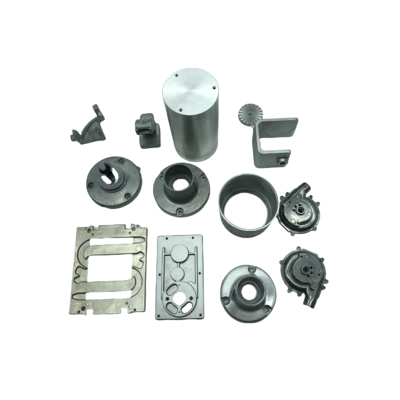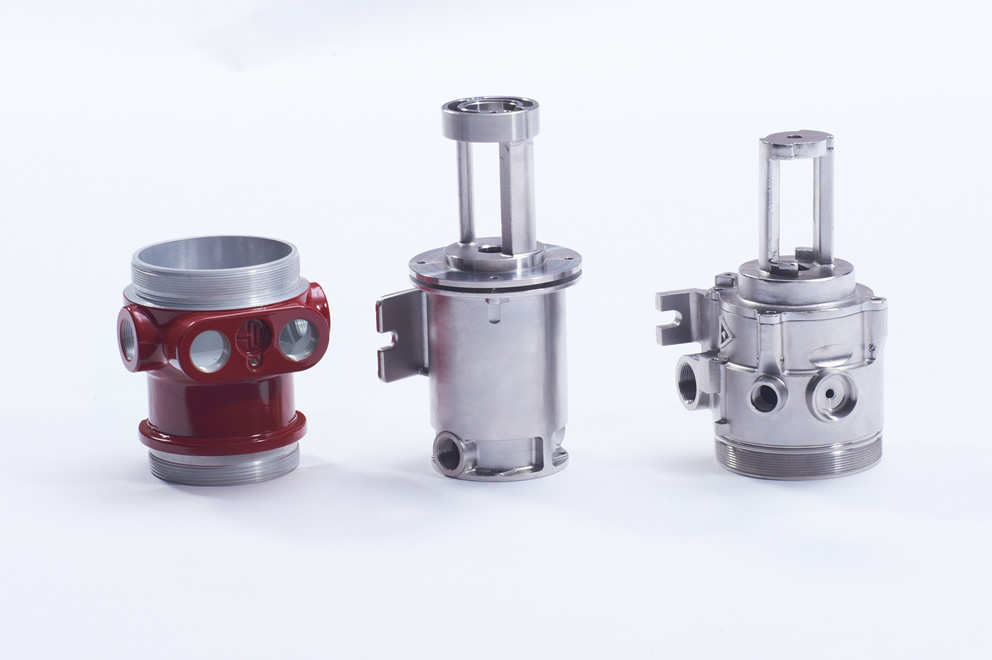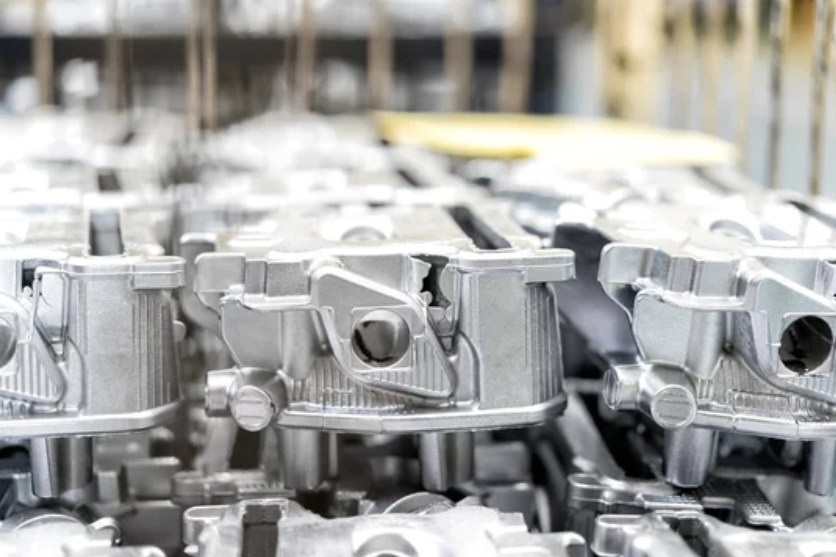The Role of Aluminum Foundries in Progressing Lightweight Manufacturing Solutions
Light weight aluminum foundries greatly add to the evolution of light-weight manufacturing solutions. Their ingenious spreading technologies yield high-strength, light-weight elements vital for sectors such as vehicle and aerospace. This improvement not only boosts product efficiency however also advertises sustainability with making use of recycled products. As these factories adapt to arising practices and technologies, they lead the means for future growths in producing performance and ecological obligation. What exists ahead in this transformative journey?
The Advantages of Lightweight Products in Production
As markets significantly look for efficiency and sustainability, the fostering of light-weight products in manufacturing has arised as a vital method - Aluminum Foundry. These materials, particularly aluminum and composites, supply countless advantages that improve production procedures and item performance. Largely, their lowered weight contributes to lower power usage during transport and operation, bring about substantial price financial savings
Light-weight products help with the layout of more facility geometries, enabling for higher innovation in product growth. This adaptability usually results in enhanced capability and performance, satisfying the evolving needs of contemporary customers.
Additionally, the use of light-weight products can enhance the durability of products because of their resistance to corrosion and fatigue. This longevity not just lowers upkeep prices but also supports sustainability campaigns, as longer-lasting products add to less waste. To sum up, the advantages of light-weight products are essential in driving performance, innovation, and ecological obligation in production.
Technologies in Aluminum Casting Technologies
Recent innovations in light weight aluminum casting innovations are reinventing the manufacturing landscape, particularly in the manufacturing of lightweight components. Developments such as high-pressure die casting and vacuum cleaner pass away spreading have actually substantially improved the precision and surface area finish of aluminum parts - aluminum casting. These methods enable for the creation of complex geometries while lessening material waste and improving mechanical buildings

Furthermore, the execution of real-time surveillance systems guarantees quality control throughout the spreading process, leading to more constant item outcomes. Collectively, these technologies not only enhance the efficiency of aluminum parts yet likewise sustain the industry's shift towards even more sustainable manufacturing practices.
Applications of Light Weight Aluminum Parts in Numerous Industries
While aluminum components have long been utilized in numerous industries, their adaptability and lightweight properties remain to drive innovative applications throughout fields such as auto, aerospace, and construction. In the automotive industry, aluminum is significantly used for engine blocks, wheels, and body panels, improving fuel performance and efficiency. Aerospace producers leverage light weight aluminum for airplane structures and parts, taking advantage of its strength-to-weight proportion to enhance gas economy and haul ability.
In the building and construction field, light weight aluminum is favored for home window structures, roof covering, and architectural elements, giving resilience and resistance to deterioration while minimizing general structure weight. In addition, the electric and electronic devices markets gain from light weight aluminum's conductivity and light-weight nature, using it in wiring, units, and warm sinks. These varied applications highlight the essential duty of aluminum parts, which not just satisfy sector demands however additionally add to advancements in product style and functionality throughout numerous areas.
Sustainability and Power Performance in Aluminum Foundries
The aluminum factory industry plays an essential role in promoting sustainability and power performance, specifically as demand for light-weight components remains to grow across various markets. Shops are progressively embracing eco-friendly techniques, such as utilizing recycled light weight aluminum, which significantly reduces energy intake and greenhouse gas discharges contrasted to main aluminum production.
Additionally, developments in casting modern technologies enhance energy performance by optimizing the melting procedures and reducing waste. Methods like die casting and financial investment casting permit for exact product use, minimizing excess and scrap.
Furthermore, several factories are purchasing renewable resource sources to power procedures, even more decreasing their carbon footprint. Applying energy administration systems allows foundries to enhance and monitor power usage, ensuring they run at peak efficiency.

Future Fads in Lightweight Production Solutions
How will arising modern technologies shape the future of lightweight manufacturing solutions? Technologies such as innovative products, automation, and additive manufacturing are set to redefine manufacturing procedures. The combination of smart production technologies, including the Web of Points (IoT) and synthetic knowledge (AI), will certainly allow real-time monitoring and optimization, enhancing performance and reducing waste.

As sustainability remains to be a critical issue, lightweight options will significantly concentrate on recycling and reusing materials, straightening with circular economic climate concepts. This evolution in light-weight manufacturing will certainly not only enhance product efficiency but additionally add to ecological objectives, ensuring that the sector remains affordable in a quickly changing market landscape.
Regularly Asked Questions
How Do Aluminum Foundries Guarantee Quality Assurance in Production?
Light weight aluminum shops ensure quality assurance in manufacturing with strenuous screening, standard treatments, and continual surveillance - Aluminum Foundry. They apply knowledgeable employees and advanced technologies to keep uniformity, reduce flaws, and meet sector standards throughout the production procedure
What Are the Main Challenges Dealt With by Light Weight Aluminum Foundries?
Aluminum foundries encounter difficulties such as fluctuating basic material expenses, preserving production effectiveness, making sure consistent quality, adapting to technical developments, and conference environmental policies, all of which influence their total operational efficiency and competitiveness out there.
Just How Does Light Weight Aluminum Recycling Influence Factory Procedures?
Light weight aluminum reusing significantly enhances shop procedures by reducing raw material expenses, lessening power consumption, and lowering ecological impact. This lasting method makes it possible for factories to improve effectiveness while satisfying raising demand for light-weight, high-performance aluminum items.
What Skills Are Required for Workers in Light Weight Aluminum Foundries?
Employees in light weight aluminum shops call for abilities in metallurgy, machining, quality assurance, and safety practices. Effectiveness in operating machinery, comprehending alloy homes, and analytical are likewise vital for reliable manufacturing and keeping high safety and security criteria.
How Do Light Weight Aluminum Foundries Deal With Waste Monitoring?
Aluminum shops handle waste via recycling scrap steel, utilizing reliable waste partition methods, and sticking to ecological laws. They carry out sustainable methods to lessen land fill contributions, making sure that hazardous products are thrown away properly.
Light weight aluminum factories substantially add to the evolution of lightweight manufacturing solutions. Current advancements in aluminum spreading technologies are transforming the manufacturing landscape, particularly in the production of lightweight elements. While light weight aluminum components have actually long been made use of in different sectors, their convenience and light-weight residential or commercial properties proceed aluminum casting to drive cutting-edge applications across industries such as automotive, aerospace, and building and construction. Furthermore, the electrical and electronics sectors profit from aluminum's conductivity and light-weight nature, using it in electrical wiring, rooms, and warmth sinks. The light weight aluminum shop market plays a vital function in promoting sustainability and power efficiency, especially as need for light-weight elements proceeds to grow across various markets.